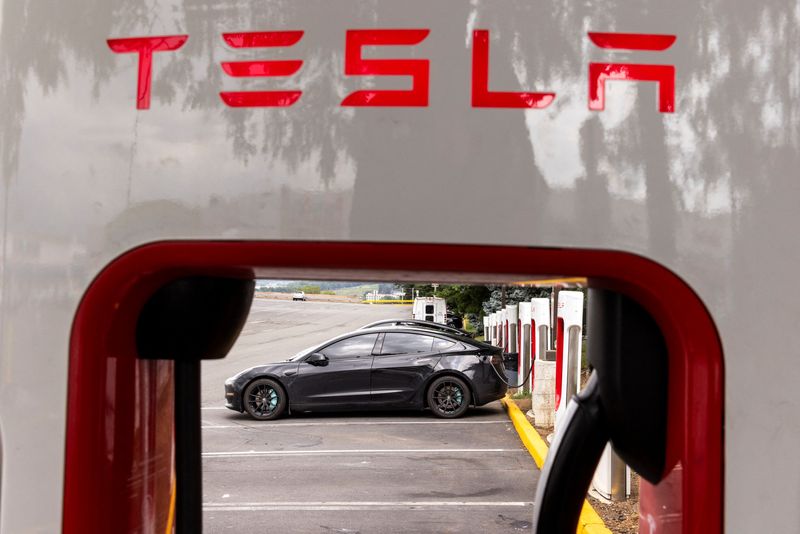Hedge funds cut NFLX, keep big bets on MSFT, AMZN, add NVDA
Investing.com-- TD Cowen upgraded its rating on electric vehicle maker Tesla (NASDAQ:TSLA) and hiked its price target sharply, with the investment bank stating that it had transferred coverage of the stock internally.
TD upgraded Tesla to Buy from Hold, while raising its price target on the stock to $388 from $180, representing an upside of 47% from Tesla’s Thursday close.
The investment bank said while the stock was still facing a slew of challenges, its prospects in EVs, autonomous vehicles and robotics tilted the risk/reward ratio favorably for Tesla, especially after recent losses in valuation.
TD still sees a challenging first quarter for Tesla, but expects an improvement in the later quarters. The EV maker is also less exposed to tariff risks, TD said.
TD’s base case is that Tesla will log mid-teens delivery growth in 2025 and 2026 along with improved margins. The investment bank said it did not account for any developments in self driving and robotics in its base case.
An upside scenario for Tesla is the successful deployment of its self driving ambitions, the introduction of new autonomous vehicles, momentum in its robotics product Optimus, as well as a resurgence in sales on new EV launches.
But TD noted that trade tariffs under President Donald Trump still remained a risk, as did a potential repeal of the Biden-era Inflation Reduction Act, which offers subsidies for EV purchases.
A miss in Tesla’s self-driving deliverables also presents downside risk.
Tesla lost nearly a third of its valuation so far in 2025, as weak deliveries, doubts over its self-driving ambitions and growing concerns over CEO Elon Musk potentially alienating his customer base battered the stock.
The company has pivoted heavily into autonomous vehicles, artificial intelligence, and robotics, to help offset weakening deliveries, although it is still yet to monetize its ambitions in the sectors.
A mix of heavy Chinese competition and softening global automobile demand saw Tesla log its first annual decline in deliveries in 2024.
